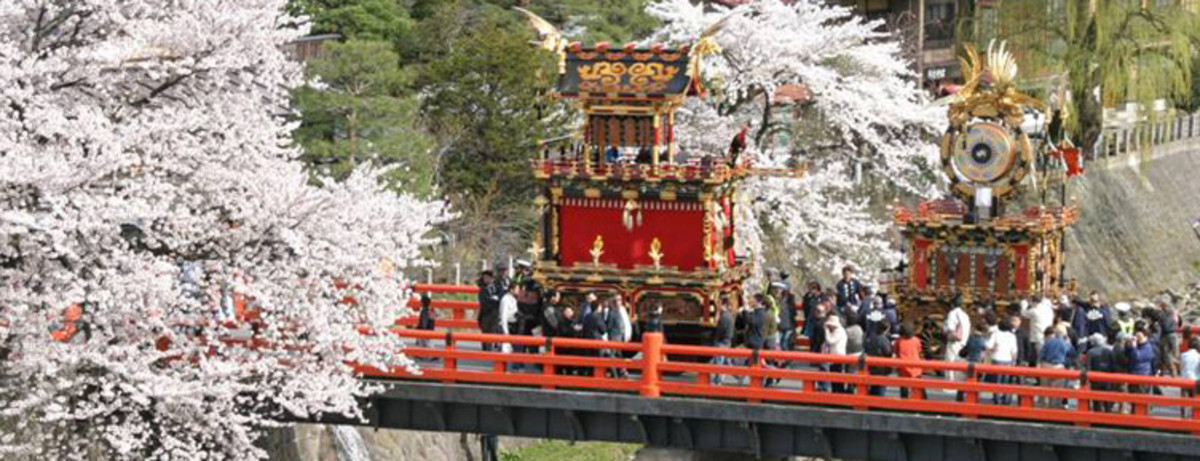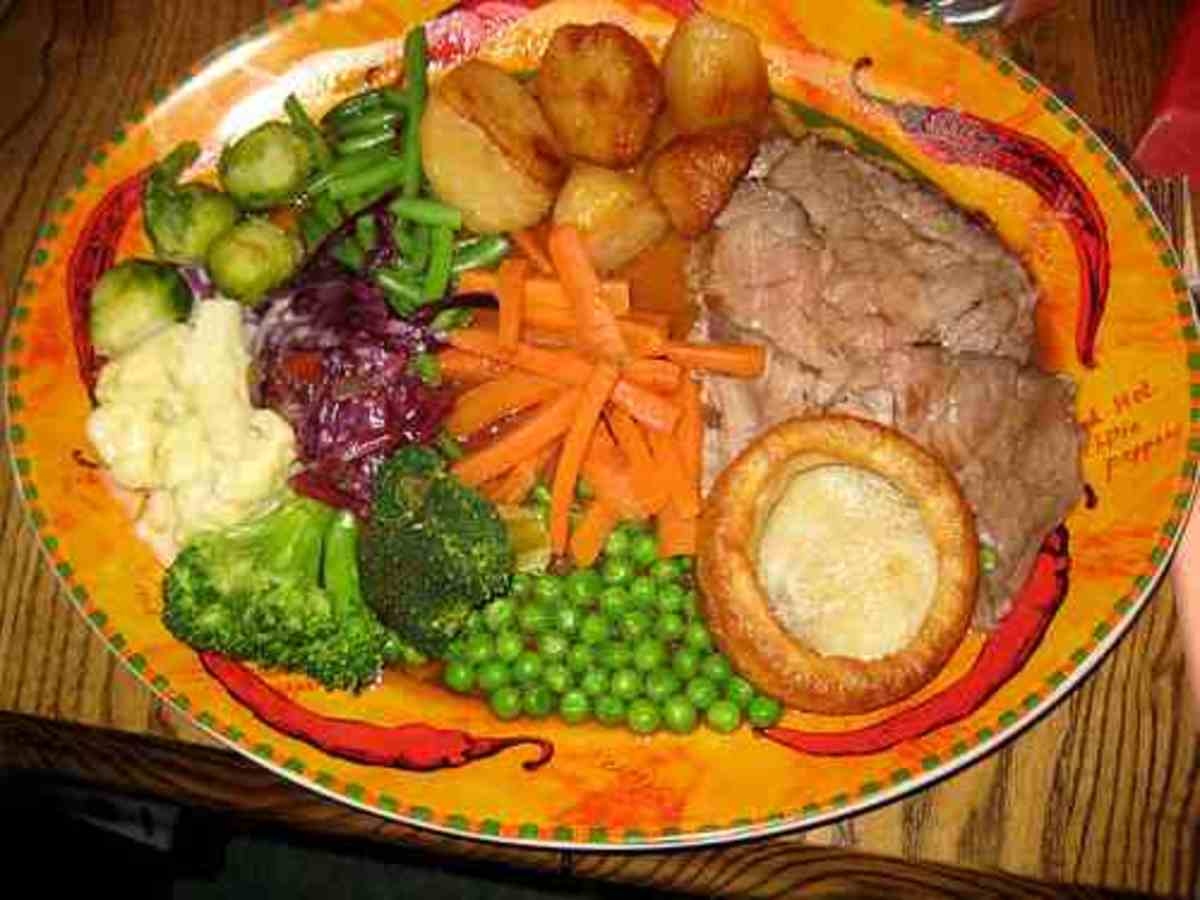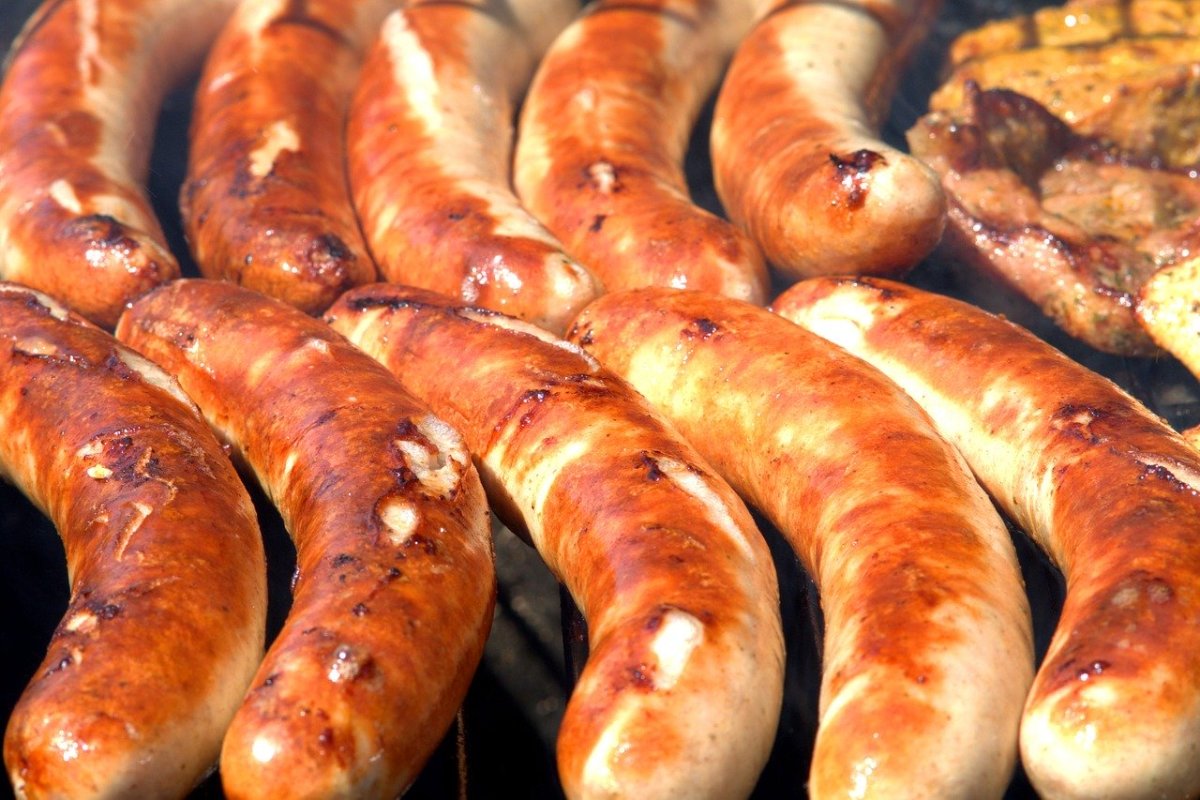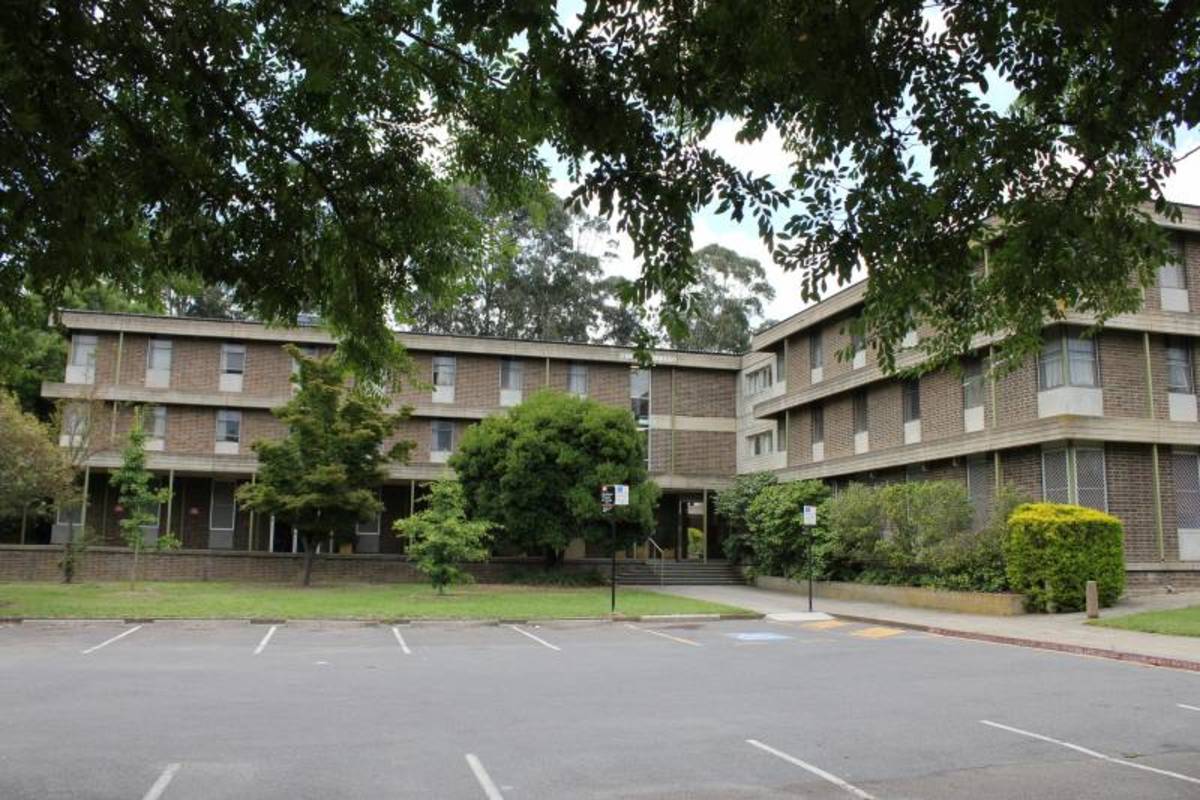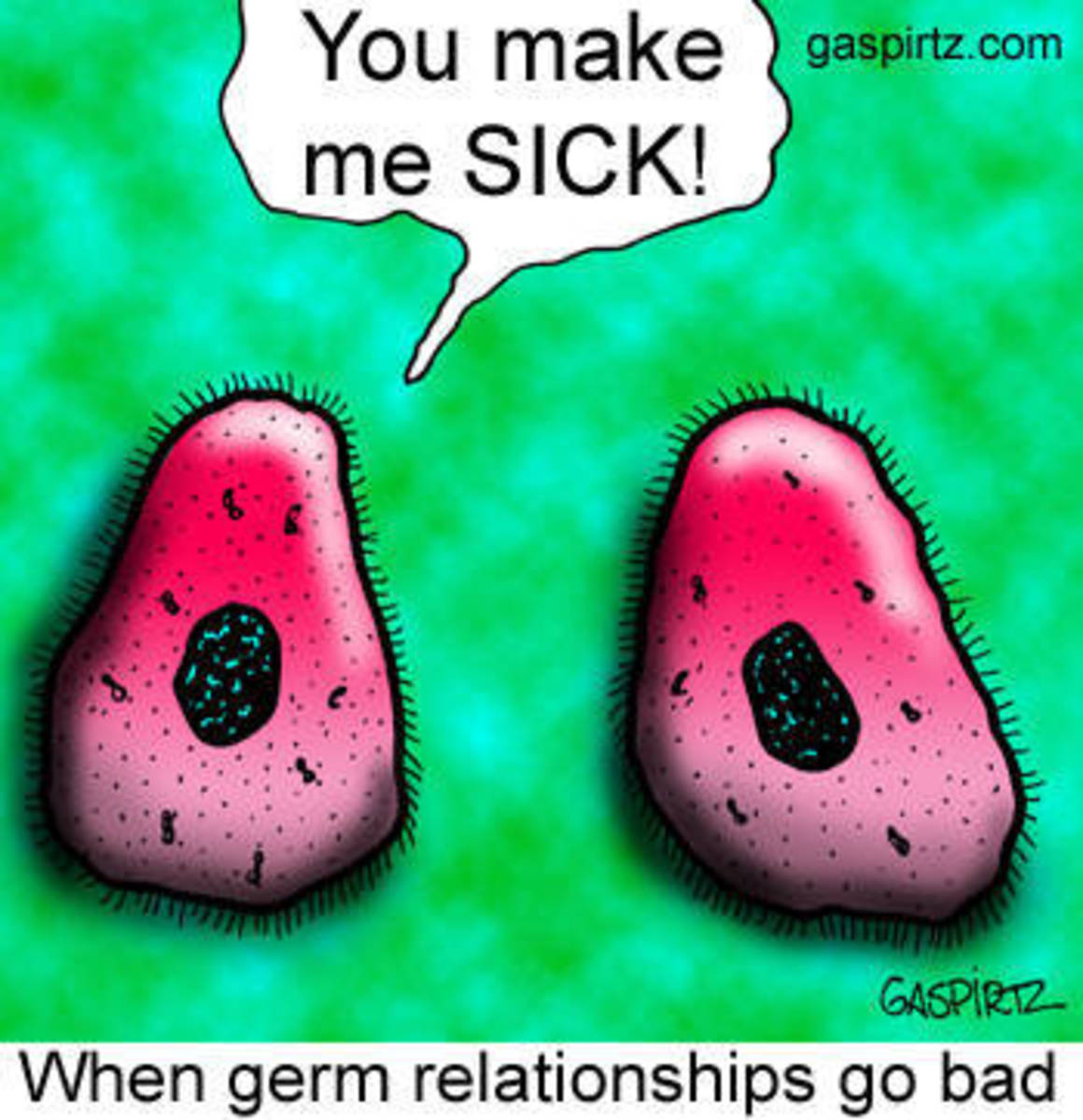The Horsemeat Scandal
The Great World-Wide Horsemeat Scandal
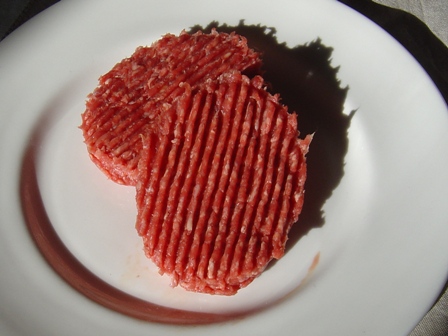
What's in the meat that we eat?
It all began on the 15th January 2013 when horsemeat was found in beef burgers on sale in UK and Ireland. The story gets worse. Pork was found in halhal meat served to moslem prisoners in UK prisons, so-called beef lasagne is 100% horse and suddenly a storm blew up - we simply don't know what in the world we are eating!
It turned our that many of the big supermarket and food labels were involved - Tesco, Findus, Iceland ... Nor was the problem limited to Britain. Suppliers all over Europe were to blame.
The first response of UK politicians was to assure us that the meat we eat is safe - but if we don't know what is in our food, how do we know where it was produced and how?
Furthermore, the problem seems to be rooted in the recession and political decisions that confused health and safety policy, dissipated responsibility and slashed resources for testing our food.
This is a brief overview of how the story unfolded.
Most of the UK information came from BBC Radio 4 news reports, The Guardian newspaper, and BBC Radio 4 Food Programme. Links to sources are given below.
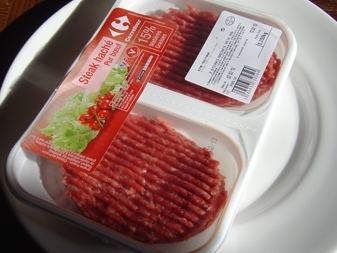
15 January 2013 - Horsemeat found in beef burgers
- The Food Safety Authority of the Republic of Ireland (FSAI) told the world that Horse DNA was found in beefburgers sold in supermarkets in the UK and Ireland.
- The FSAI said the meat came from Liffey Meats and Silvercrest Foods processing plants in Ireland, and the Dalepak Hambleton plant in Yorkshire.
- After analysis 10 out of 27 products were found to contain horse DNA and 23 contained pig DNA.
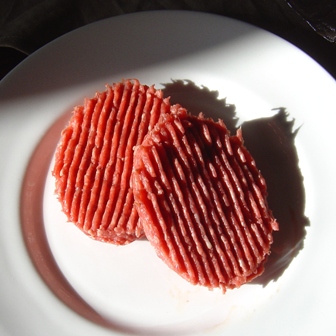
Who was selling these products at this time?
- Tesco
- Iceland
- Dunnes Stores
- Lidl
- Aldi
These are all big names and, what's more, they all have trusted reputaions. Their response was to immediately withdraw all the products from the shelves.
What's the problem with horsemeat?
At first is was simply seen as a problem with labelling, culture and sensibility. It was generally agreed that the food should be accurately labelled and horse meat should not be sold under the label of beef.
The fact that many people, for cultural reasons, choose not to eat horsemeat was an additional irritation, but one that was minimized by the politicians.
The FSAI chief executive, Alan Reilly, is quoted as saying "In Ireland, it is not in our culture to eat horsemeat and therefore, we do not expect to find it in a burger."
Horsemeat found in Findus lasagne - Channel 4 News
No risk to health?
Professor Alan Reilly, chief executive of the FSAI, felt that he could assure us that there was no risk to public health, despite the fact that horsemeat and pig meat of unknown provenance was found in food labelled as beef. Professor Reilly did conceed that the the issue "raised some concerns".
The Irish Minister for Agriculture, Simon Coveney, also felt that he could assure the public that this horsemeat presented ' no food safety risk"
16 January 2013 "Horsemeat beefburgers' investigated in UK and Ireland"
- On the 16th January it transpired that the tests that had revealed the presence of horsemeat were carried out tests two months earlier.
- Investigations were begun to find out how the beefburgers had become 'contaminated' with horsemeat.
- DEFRA, the Department for Environment, Food and Rural Affairs in the UK said it was now working with the FSA, the Food Standards Agency to trace the provenance of the horse meat.
-
Professor Alan Reilly (FSAI) said there was "a plausible explanation for the presence of pig DNA in these products, due to the fact that meat from different animals is processed in the same meat plants". He added that this didn't explain how horsemeat DNA could have been found to be present. (Remember that 29% of the meat content in one sample from Tesco was horsemeat - when we say DNA this is not minuscule quantities we're talking about here).
But he added: "There is no clear explanation at this time for the presence of horse DNA in products emanating from meat plants that do not use horsemeat in their production process - "We're very sorry this has happened" said Tesco's Tim Smith.
Why don't the British eat horse?
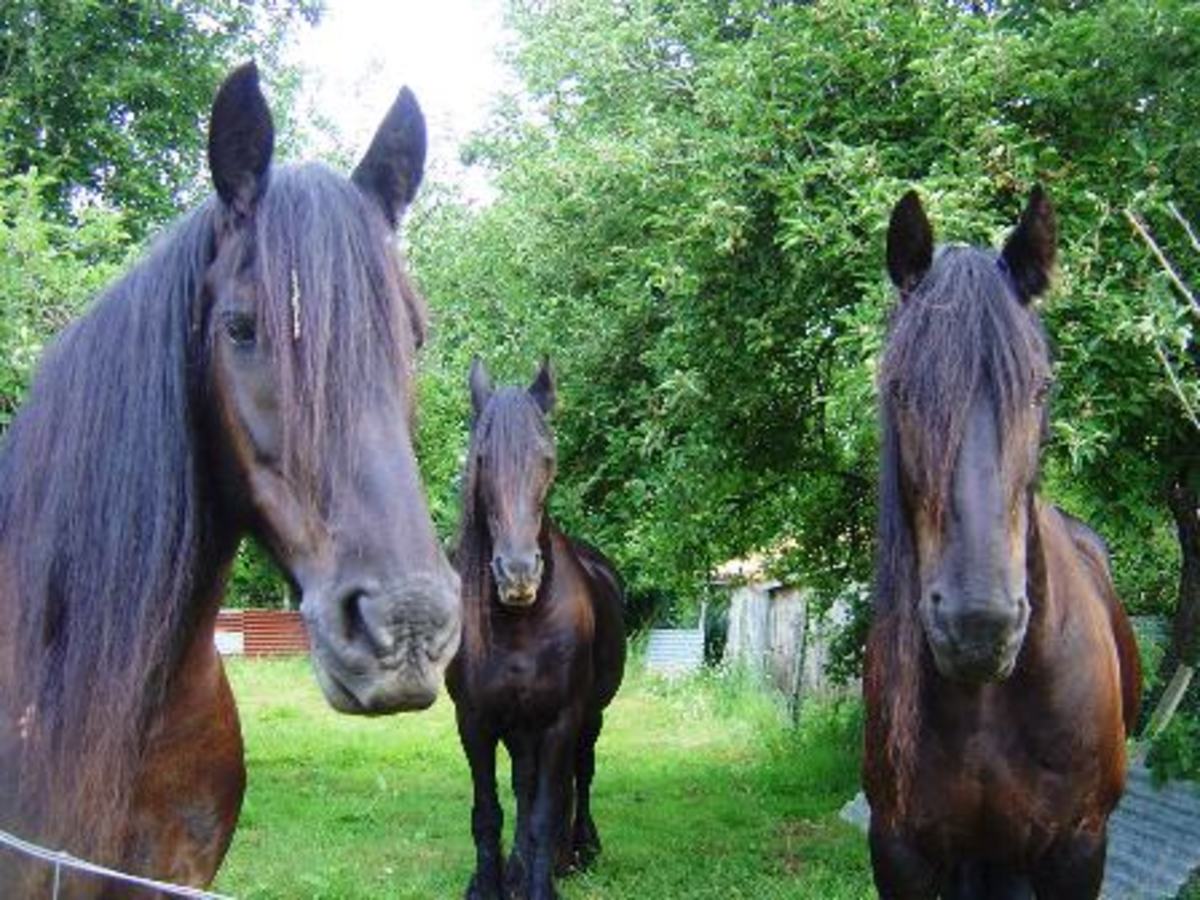
18 January 2013 "Why are the British revolted by the idea of horsemeat?"
This is really a bit of a red herring in the debate - whether you want to eat it or not, the fact is that you were not told it was there and the real issue is food labelling and the tracability of food - so I'm going to gloss over it here and write about the cultural aspects of eating horse in a separate article.
What is interesting is that it is constantly pointed out that the French do eat horse - which is true. This fact becomes interesting later on in the story.
It has also been pointed out that horse meat is very palatable, contains less fat than beef and contains slightly higher protein.
Where do you stand on eating horse meat?
Are you happy to eat horse meat?
3 February 2013 - Halal meat containing pork served to Muslims in UK prisons
- McColgan's Quality Foods Limited supplied halal food containing pork DNA to prisons.
- The meat was also found to contain horse
- 3663 had carried out the relevant tests
- The County Tyrone company said it was now co-operating with The Food Standards Agency.
- Muslims are required to eat halal food and are strickly forbidden to eat pork in any form. The halal foods were immediately withdrawn.
4 February 2013 - "Food watchdog in urgent talks over meat scandal"
According to Steve Wearne (FSA) the FSA, called an urgent meeting with several suppliers on the following Monday in order to "stress again the responsibility of all food businesses to ensure the food that they sell contains what it says on the label".
Note the blame is being put onto the suppliers!
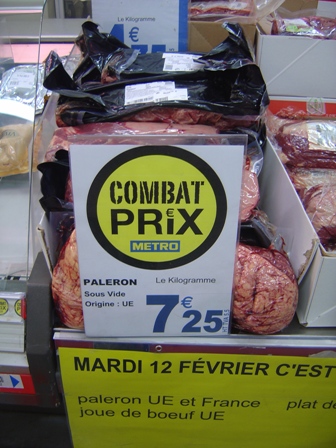
6 February 2013 - Bolognese, lasagne and French supplier
- Comigel, the French supplier, advise Findus UK and Aldi to remove Findus Beef Lasagne and Aldi's Today's Special Frozen Beef Lasagne and Today's Special Frozen Spaghetti Bolognese as they "do not conform to specification".
- Tesco state that they will withdraw Everyday Value spaghetti bolognese as a cautionary move as it was produced at the same Comigel site.
- Again, the fact that there are no health or safety issues with the unknown meat is stressed.
(Note these special offer deals for later on in the plot).
6th February 2013 - Asda burgers - Asda joins in
- Asda Supermarkets withdraw four types of frozen burgers. These were supplied by Freeza Meats, a Northern Ireland company. The withdrawal of these burgers was said to be a precaution.
- Meat containing 80% horse DNA was discovered at Freeza Meats in Newry.
- Freeza Meatsmaintained that it was only storing the meat for another firm based in the Irish Republic after having decided not to buy it.
8 February 2013 - UK vets and concerns over bute in food
- Concerns about the drug 'bute' found in UK horsemeat destined for exporthave been raised 'repeatedly' by an independent veterinary committee
-
Phenylbutazone (bute) used as an anti-inflammatory for horses is toxic for some people - in rare cases causing the blood disorder aplastic anaemia.
-
Phenylbutazone is banned in horses used in food but the drug is still in use to treat horses.
"I Could Eat a Horse" Gifts and Cards to Customize
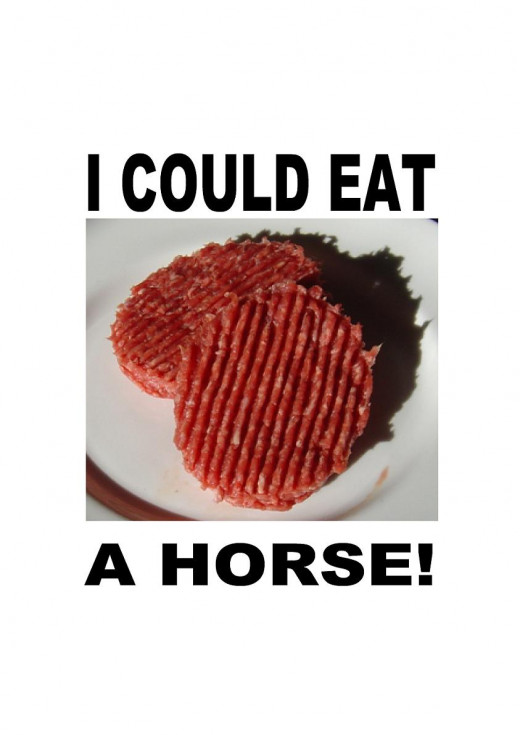
Horsemeat jokes - raising issues or just bad taste? You decide
- http://www.squidoo.com/horse-meat-jokes
These are the best horse meat jokes from the 2013 horse meat scandal - these jokes just go to prove that the whole food and meat industry is no laughing matter! The scandal came to light early in the year the news that horse DNA had been found in Tes
8 February 2013 - Horse meat 'Big trade' in the UK
- c. 8,000 horses a year are slaughtered In the UK for human consumption.
- The meat is exported to other European countries. EU regulations dictate that tests be carried out for substances including bute
-
Last July the Veterinary Residues Committee UK, produced a report showing that 5 out of 60 samples of horsemeat to be exported to Europe in 2010 contained bute.
(Note the time scale here!)
8th February 2012 - Horse Passports, US, Canada and Mexico
- Horses have legally been required to have 'passports since 2005
- These passports state whether or not the horse has been exposed to bute and whether is to be used for human consumption
- UK horsemeat 'positives' found to contain bute have come " from difficulties with these documents". (I've put this in inverted commas because I'm not sure what this means exactly
- The question arises: is it error or fraud?
- June 2012 passport problems were flagged up by the European Commission's Directorate General for Health and Consumers in its audit of Italan abbatoirs (Italy - EU's biggest consumer of horsemeat)
- Despite an EU ban on bute thousands of tons of horse meat come into Europe from Canada, the US and Mexico where ex-racehorses are slaughtered for food. These have been called "walking pharmacies" New York Times.
- This risk had been highlighted in 2010
8th February - McAdam Foods import meat from Poland
- Martin McAdam of McAdam Foods,County Monaghan, Ireland, denies knowledge of horsemeat sourced from 2 factories on Poland
- On Tuesday 5 February McAdam Foods had sourced meat from a UK-based supplier
- This meat was stored at Freeza Meats in Newry
- McAdam had amsp importedmeat from Poland that made it into Rangeland Foods, based near Castleblayney.
15 January 2013 - what you can expect to find in 'value burgers'
- Fascinating - but I'll deal with this separately too!
8 February 2013 - The impact on business
- Disastrous for supermarkets and suppliers - no surprises here then!
- Tesco, Aldi and the Co-operative supermarkets withdrew contracts from Silvercrest owned by ABP Food Group.
- The FSA urged the industry to carry out its own testing - which could cost the food industry millions.
- Neil Saunders from Conlumino points out that supermarkets will be able to claim compensation from the suppliers.
- People could also be switching to premium products and even buying from local butchers (every cloud ....?) so they might not lose out in the longrun!
8th February - Findus100% horsemeat lasagne
- Findus withdrew 'beef' lasagne ready foods. The meat element was100% horsemeat although its other beef products were not found to be contaminated.
- Apparently it was a French supplier who warned Findus on Mondaythat the 'beef lasagne' didn't "conform to specification."
8 February 2013 - "Keep on eating the meat" says ministers
- Owen Paterson, Environment Secretary, still saying withdrawn meat products "pose no threat to human health"
- David Heath, Food Minister, tells us to 'carry on consuming' meat "unless told otherwise"
- Mary Creagh, shadow environment secretary, doesn't believe this is the end of the contaminated food debacle.
Anybody remember John Gummer feeding his young daughter beefburgers on TV during the Mad Cow scandal? Trust them? Still protecting the meat industries rather than the people. And isn't it interesting that it was another woman, Edwina Curry who flagged up the problems with UK egg industry, and received little thanks from the politicians for that.
Owen Paterson met retailers and the Food Standards Agency
Who was at this meeting? According to News UK the following were present:
· Environment Secretary Owen Patterson
· Food and Drink Federation (Findus is a member)
· Federation of Wholesale Distributors
· British Retail Consortium
· Tesco
· Sainsbury's
· Food and Drink Federation
· Asda
· Institute of Grocery Directors
· British Meat Processors Association
· Co-operative Food
9th Feb 2009 - "incompetence" or international criminal conspiracy?
- Questions now being asked whether the horsemeat scandal is incompetence or criminal "conspiracy
- Owen Paterson demands 'meaningful results' from tests by Friday
- Responsibility lies with supermarkets and retailers
- Morrisons chief executive Dalton Philips: Food supply chain 'too complex'
- Findus admit that test results 29 January showed traces of horsemeat in its beef productst in its products - a week before it told the FSA
- FSA - "highly likely" criminal activity was to blame
- Met Police will not launch an investigation "unless it becomes clear there has been any criminality".
9th February 2013 - who's to Blame?
- The head of Findus France not to blame - the company has suffered fraud and is going to the French courts on Monday
- Barthelemy Aguerre, president of the French company Spanghero, which sold horsemeat to Findus blames its supplier.
- Findus say they did not know that horsemeat was in the 'beef' last year
9th February 2013 - traceability systems
- Andy Foster, Trading Standards describes the tracing systems as being completely electronic. A bar code attached to any raw material or finished product will bring up a list of suppliers world-wide
- Mr Foster tells us that "Most of the factories that I've spent my career in will have very good traceability systems," but it only takes one person who doesn't follow the rules to bring the system down ( BBC Radio 4's Today programme)
- Andy Foster agreed that companies such as Findus and Tesco should inspect the food factories
10th February 2013 - Horsemeat found to originate in Romania
Horsemeat found to originate in Romania
11th Feb 2013 - The Scope of the horse meat scandal widens
- French ministers to hold talks with meat industry agencies in up to 16 countries
- Food industry's supply chains across the EU called into question
- Seven French supermarket chains withdraw frozen beef meals by Findus and Comigel. They are Auchan, Casino, Carrefour, Cora, Monoprix, Grand Jury and Picard.
- Benoit Hamon, Junior Minister for Consumer Goods, France, tells us that an investigation in France found the French firm Poujol had bought the frozen meat from a Cypriot trader
- The Cypriot trader had bought the meat from Dutch food trader who bought it from two Romanian slaughterhouses.
- Poujol supplied the meat to a Luxembourg factory owned by French group Comigel and it was then sold by Findus - a brand based in Sweden.
Confused? I am - in the detail and the time-scales but the overall picture becomes very clear indeed.
.
The blame chain
One thing in all this is that all control has been lost on the food supply chain and now everyone is blaming someone else. The courts are going to love this!
So who is blaming who (on the 11th February 2013)?
Tesco are blaming Silvercrest foods ( owned by ABP), and ABP are blaming McAdam Foods, McAdam foods are blamingthe Irish suppliers, and an intermediary in Hull (I wonder who that is - after a quick search on Google, I think it might be Flexi Foods!).
Inside Story - Horsemeat scandal: Who is to be blamed?
The Food Programme sums it up
BBC Radio 4 Food Programme Special sums it all up and begins by saying it is “Shining a bright and uncomfortable light on areas of the food chain that rarely receive scrutiny”
The presenter is Sheila Dillon and producer Dan Saladino.
Dan Saladino divides the story into his two key areas - The supply chain and the testing process.
In this programme the unfolding of events which I've tried to summarise above is outlined, and then the programme goes on to fill in some very interesting background involving politics, money and the recession.
Horse trafficking
The Food programme gives us a bit more information about the Canadian and Mexican links in the food chain. Every year there are approximately a hundred thousand horses coming from Canada and Mexico and between 70 – 80% of these are going to the European Union (EU). Most go to Belgium, then to France and Italy. The great horsemeat fraud is carried out, according to the Steven Philpot on the Food Programme, with a simple, printing kit and microchip, easily bought on the highstreet for song.
Co-incidentally, the Ulster Society for the Prevention of Cruelty to Animals have been following another thread in the horsemeat scandal story. In the autumn, 2010 they responded to a call and found neglected horses in fields. They realised that these horses were not raised here but were being 'coralled'. Eventually the pieces of the jigsaw was put in place and and a picture emerged of unwanted horses in Ireland being rounded up at night, taken to abbatoirs. In Ireland there are seventy thousand horses that have not been properly accounted for. These horses have been treated with various drugs and chemicals including the drug banned for animals destined for human consumption, phenylbutazone. Profits hre are high - animals can be bought for only ten euros and then sold on for meat for five hundred euros.
What goes into burgers and processed meat - legally
The Food Programme continued: With the pressure to reduce costs, these are just some of the practices and ingredients that go into processed meat:
- Collagens
- Fats
- Hides
- Feathers
- 'Trim’ - parts of of animals people might not count as meat (ugh - the imagination works overtime here!) and these come from all over world
- Meat derived from de-sinuing - bits of meat is removed from bones using water, similar to mechanically recovered meat (Jamie Oliver brought this to my attention some years ago)
The role of the recession and the government
The Food Programme brings in a little historical and political background that is most illuminating.
labour politician, Barry Gardener, links the scandal to changes the UK Coalition Party has made to food standards. Changes made to the FSA in 2010 where the responsibility for policy setting for labels was moved from the FSA to DEFRA. The policy setting for food safety was given to the Department Of Health. Responsibility for food safety now rested with three organisations, none having full control.
Food testing cut-backs
The Food Programme flags up the importance of food testing and the lapses caused by cut-backs in the UK
- David Heath, Food and farming minister, disputes the fact that there has been a 30% cut in trading standards officers and 40% reduction of food sampling although
- Germany has a testing rate 15 times higher than the UK.
- David Heath says ours is based on risk analysis - a risk is identified and then food is tested for that risk
- Interesting that it was the irish who identified the presence of horsemeat in 'beef' products
- Dr Mark Wolf was the former head of food authenticity and the UK FSA (Food Standards Agency) and is one of the world's experts on food fraud. The FSA was producing a checking system on meat based on techniques employed by criminal forensic science. They were a victim of their own success and by c 2004 – 6 the retailers found they didn’t like being named for food failings; pressure was brought to bear and resources were withdrawn.
Am I paranoid to say there is a consipracy and it is not only a criminal conspiracy but also an economic and political consipracy?
Listen to the Food Progamme yourself (links below), as I've cut out so much excellent and illuminating detail.
Should the retailers check meat?
Tim Smith, the technical director of Tesco, says the firm is proud of its checking systems for their supply chains that could be detrimental to their standing. The Food Programme tells us that Tesco spends four million pounds annually on product authentication – and yet they didn’t pick up the horsemeat.
Wednesday 13 February 2013 - Slaughter Houses Raided
- On 12 February the FSA and the police raided two British meat companies and seized meat and paperwork
- The slaughter houses raided were Peter Boddy Licensed Slaughterhouse in Todmorden, West Yorkshire, and Farmbox Meats, near Aberystwyth, north Wales
- Peter Boddy claimed the FSA and police had not "raided" his slaughterhouse, but visited it. "They just wanted to see my records, which I will be showing them." (ITV)
- Five slaughterhouses in the UK processed horses on a regular basis
- Andrew Rhodes director of operations for the FSA said the problems with horsemeat were not widespread in the UK.
- Dafydd Raw Rees, of Farmbox Meats, told the BBC that the firm had a licence for horsemeat and they had been handling horse meat from the Irish Republic for the last three weeks, but not knowingly before that. He said everything he did was legal.
The environment secretary,Owen Paterson, was travelling to Brussels on Wednesday for an emergency meeting of European countries caught up in the scandal.
14 February 2013 - Three men held in horsemeat investigation
- Two men from Farmbox Meats Ltd and one man from Peter Boddy Slaughterhouse have been arrested. All claim they are innocent.
- The Peter Boddy Slaughterhouse is 'reported' to have supplied horse carcasses to the Aberystwyth plant, which were then 'allegedly' sold on as beef for kebabs and burgers (from BBC News UK - journalists are being cautious here).
Todmorden slaughterhouse
What outspoken celebrity chef Clarissa Dickson Wright has to say about the horse meat scandal
In an interview for th Daily Record by By Maria Croce and pulblished on the 14th February,
Clarissa Dickson Wright tells us that we should "worry more about the labelling of our food than eating horse meat". She herself has eaten horse, though she's not so fond of it, and informs us that the real reason the English don't like horse is because Alfred the Great people ate it, they’d go to hell if they ate horse - and all in an effort to keep them from consuming his best cavalry breeding stock!
Amongst several other words of wisdome, Clarissa soothes us by saying that horsemeat is "rather good" for us!
15th February 2013 - Horsemeat in school and hospital meals
Today's headlines are dominated by the horsemeat found in food destined for schools and hospitals. Food with unknown and untraced content going into the food of the sick and of our children has put everyone in atis in the UK.
The Guardian reports that horse DNA has been detected in cottage pies to be sent out to schools in Lancashire and also in burgers for Northern Ireland hospitals. These were withdrawn.
16th February 2013 - Wild Horse Chase in Romania
In this BBC Radio 4 worldwide investigative programme, Nick Thorpe, a vegetarian of 37 years, is sent tofind out more about horse meat; he visits a slaughterhouse in Romania.
Nick Thorpe paints a haunting theme from the homeplace of Dracula. His purple prose describes the horsemarkets of Romania, watches the horsedrawn carts and visits the slaughterhouse. Up to 4000 horses slaughtered here - all destined for export.
What will happen to Romania if people turn away from meat?
He stopped at Count Dracula's castle "for a quick bite". Then walk out through the wolf room ....
Wild Horse Chase - From Our Own Correspondent
- BBC Radio 4 - From Our Own Correspondent, Wild Horse Chase
BBC correspondents report from Romania, the US, Japan, the Philippines and Nigeria.
Councils to blame for 'poor meat quality' says Iceland boss
Another link to add to the 'blame chain' I outlined further up the article. Now Iceland's chief executive, Malcolm Walker, blames the Councils fordriving down food quality for schools and hospitals - and not the retailers.
Mr Walker pointed the finger of blame on an' invisible industry' - the catering industry for schools and hospitals. Walker says that the Councils award these contracts based purely on price,
The councils, of course, deny this.
19th February 2013 - Nestle find horsemeat in beef pasta meals
Nestle have become the latest food company to remove their beef products because of contamination with traces of horse DNA. Nestle are the world's largest food company and they have been removing beef pasta meals from supermarkets in Italy and Spain.
22 February 2013 - The horsemeat scandal spreads to Hong Kong
Findus "beef" lasagna, imported from Britain and made in France by Comigel, has been taken off store shelves in Hong Kong.
22nd February 2013 - Birds Eye pulls products
The big frozen food company Birds Eye has withdrawn three ready meal beef products from UK and Irish supermarkets after horse DNA was found in a product in Belgium. They say that it's just a precaution, however, Birds Eye said its chilli con carne had tested positive for 2% horse DNA.
23rd February 2013 - Give horsemeat products to the poor?
Is it irresponsible to throw away the beef 'contaimated' with horse? Dirk Niebel, Germany's development minister, thinks so! The idea was put forward by a member of the governing CDU party. Does it make sense?
If the meat is safe, why not give it to the poor? In this day and age throwing away good food is unacceptable but if it's not good enough for the rich, why should it be good enough for the poor?
The German Connection
After Nestle announced that two types of beef pasta meals were being withdrawn from supermarkets in Italy and Spain after traces of horse DNA were picked up and traced back to a supplier in Germany, H J Schypke.
German companies Dreistem-Konserven and Vossko have also come under suspicion for making products containing horsemeat and they, in turn, have blamed their suppliers.
The German consumer affairs ministry announced last Friday, that traces of horse DNA were found in 67 of 830 food products tested.
German minister says 'Let the poor eat horsemeat'
Should the misslabelled horse meat be fed to the poor?
Would you give the meat products pulled from the shelves to the poor?
25th February 2013 - Pork and chicken to be tested for horsemeat contamination
Catherine Brown, chief executive of the Food Standards Agency has said that the wider food chain must now be looked at, rather than, as at present, just focussing on ‘comminuted’ beef.
Apparently chicken has been injected with waste from beef and pork production to inflate chicken breasts and increase prices. Implications here for Muslims and Hindus.
25th February 2013 - Ikea joins the fray
Horsemeat found in Ikea meatballs in the Czech Republic leads IKEA towithdraw the meatballs in fourteen European countries. (I loved those IKEA meatball too!). The meatballs were made in Sweden.
But the story doesn't end there. Meatballs from the same batch had already made it to the shelves in the UK,Portugal and France, according to IKEA.
Following on from this Nestle found horse DNA in meat from the Spanish supplier, Servocar.
What fun! Inspired a whole lot of IKEA / Horsemeat jokes on Twitter!
27th February 2013 - Meeting of politicians, farmers and food manufacturers
Will the farmers win or lose? While farmers worried about who was to bear the cost of andy tighter regulations and additional testing, Philip Clarke, chief executive of Tesco promised that they would be sourcing more beef from Britain in future. Owen Paterson agreed that this could be a "fantastic opportunity" for British farmers.
The pace of the horse meat debate Is slowing down
This is a quick update of what is happening:
- 28th February McDonalds declares itself horse meat free as it has close ties with farmers
- Friday 1st march: Taco Bell, US-based fast food company, found over 10% of meat in some products showed horse DNA and withdrew taco beef products from Britain and Spain.
Glossary of terms
- comminuted - meat pulverised out of all recognition
Come back for more
I find this extremely interesting reading and intend to follow the story and to catch up on what the French have been saying and doing about it all.
In the meantime if this makes you feel like buying a smallholding in rural France and producing your own food - well - there's never been a better time to buy A Home in France
Other recent food scares
- Melamine in milk
- Mad cow disease
- 1988 Salmonella in chicken and eggs
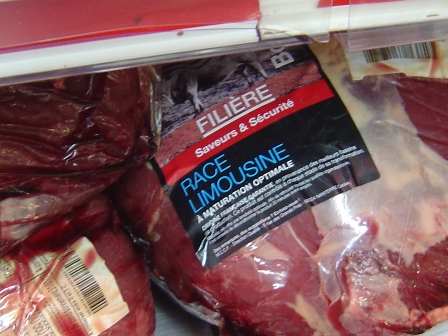
Read about real beef - the famous Limousin beef cattle breed
- Limousin Cattle in Limousin. World Famous French Beef Cattle Breeds
The Limousin cattle breed is world famous for its wonderful meat and Limousin bulls and cows are exported all over the world. Limousin pastures are beatuiful and Limousine cattle are grass fed. Grass fed beef, especially Limousin grass fed beef, is a
Buy Limousin Beef Cattle gifts and cards on my online shop
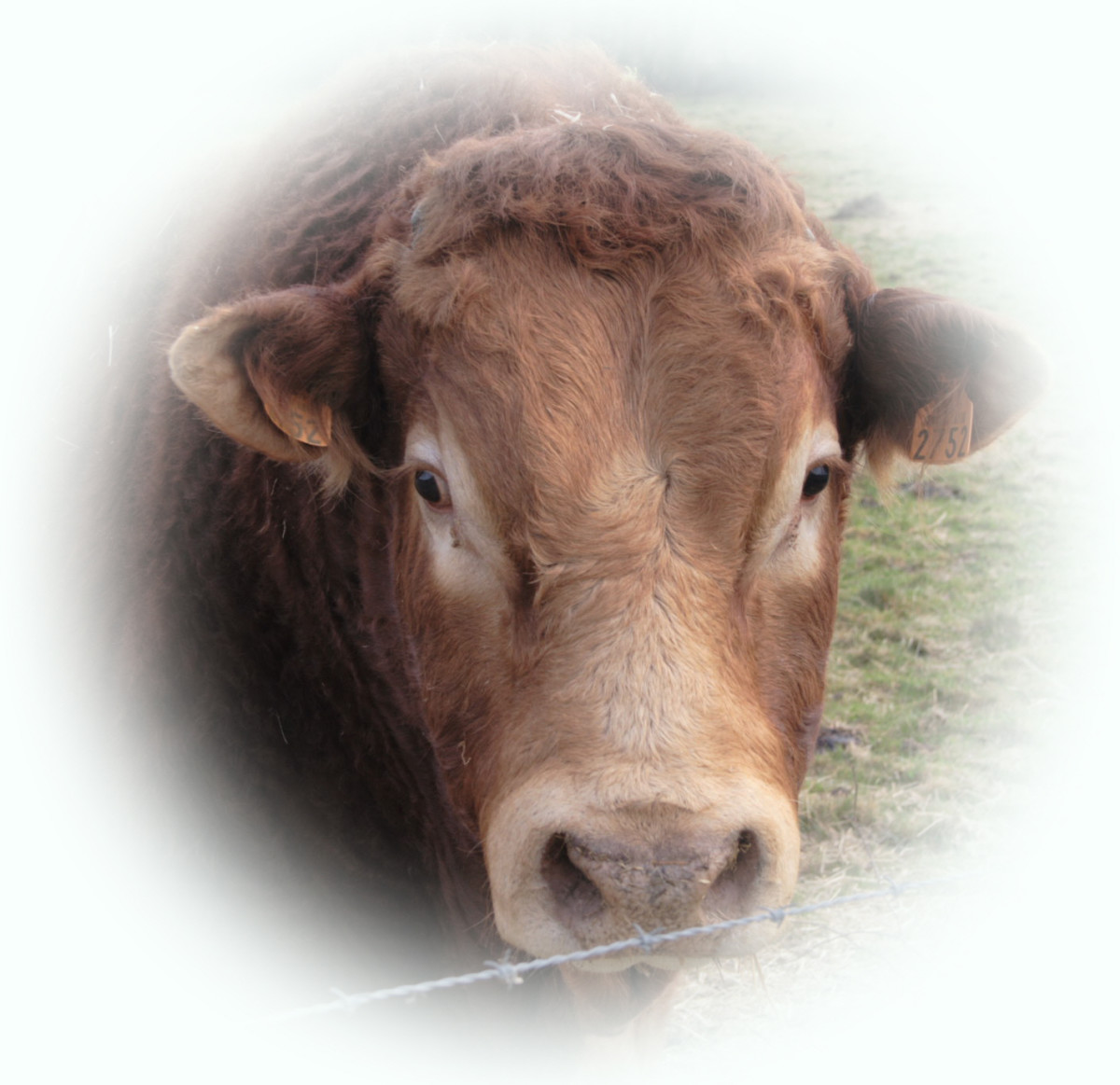
Links to my sources
- Horsemeat scandal: farmers 'must not bear cost of tighter regulation' | UK news | guardian.co.uk
Farmers say they could be forced out of business if cost of extra red tape falls to them - Clarissa Dickson Wright says horse meat is not biggest food worry - Daily Record
AS the meat furore continues, celebrity cook Clarissa Dickson Wright says we should be less worried about eating horse and more concerned about the labelling of our food. - Horsemeat scandal: FSA chief says pork and chicken will need to be tested - Telegraph
Supermarkets should test pork and chicken and other meats for cross-contamination in the wake of the horsemeat scandal, the food standards regulator has said. - Horsemeat scandal hits Hong Kong CCTV News - CNTV English
The horsemeat scandal in Europe has now spread to Hong Kong, where an imported brand of "beef" lasagna has been pulled from store shelves. - BBC News - Nestle removes beef pasta meals after finding horsemeat
The world's biggest food company, Nestle, has removed beef pasta meals from shelves in Italy and Spain after tests revealed traces of horse DNA. - BBC News - Horsemeat scandal: Spanghero licence ban partially lifted
French meat processing firm Spanghero will be allowed to produce certain types of meat as the government partially rescinds its licence suspension. - horsemeat scandal - YouTube
Share your videos with friends, family, and the world - BBC News - Iceland boss blames councils over 'poor meat quality'
Councils looking for cheap food contracts are to blame for driving down meat quality, the boss of Iceland says, amid the continuing horsemeat scandal. - BBC Radio 4 - From Our Own Correspondent, Wild Horse Chase
BBC correspondents report from Romania, the US, Japan, the Philippines and Nigeria. - http://www.bbc.co.uk/programmes/b01qkpkp
Trading Standards on the latest horsemeat tests, and news for Mac Pro users. - Horsemeat scandal: David Cameron says offenders will feel full force of law | UK news | guardian.co.
Food Standards Agency promises relentless investigation as two UK meat companies are raided and closed down - Scale of the horse meat scandal is 'breathtaking', MPs say - Telegraph
The full scale of the horse meat scandal is “breathtaking” and may pose a danger to public health, MPs warn today. - Horse meat scandal: Hull firm Flexi Foods responds to claims it sold contaminated Polish meat | This
A HULL firm has responded to allegations it imported beef contaminated with horse from Poland. Flexi Foods, in Inglemire Lane, sold the meat to Irish company McAdam Foods. Tests in September... - BBC Radio 4 - Food Programme, Horsemeat Scandal: A Food Programme Special
Sheila Dillon reports on the latest developments in the horsemeat scandal. - BBC News - Horsemeat scandal: France summons meat industry chiefs
French ministers are to hold emergency talks with key players in the meat industry as the horsemeat scandal widens to up to 16 countries. - BBC News - Q&A: Horsemeat scandal
The government has says all processed beef products on sale in the UK are safe to eat despite up to 100% horsemeat being found in some Aldi and Findus products removed from shelves last week. How did the scandal unfold and what is being done? - BBC News - Meat needs 'good traceability systems'
As swathes of contaminated meat sweep Britain, what might be the reason for its presence in some of our best-loved food? - BBC News - Horsemeat scandal: 'Tougher testing' by retailers ordered
Retailers will now carry out "more and tougher testing" of beef products in the wake of widespread horsemeat contamination, the environment secretary says. - BBC News - Horsemeat scandal: Don't dump meat, says food minister
People should not throw away frozen meat products in the wake of further revelations in the horsemeat scandal, the food minister says. - BBC News - Horsemeat scandal: The business impact
The latest scandal over horsemeat in processed food could be "disastrous" for the meat processing industry, retail analysts warn. - BBC News - What is actually in a value burger?
The presence of horsemeat in value beefburgers has caused a furore. But what do people expect to be in them? - BBC News - 'I didn't see or handle horsemeat' says Monaghan meat broker
The owner of a County Monaghan food company caught up in the horsemeat controversy says he has never seen or handled equine meat products. - BBC News - UK vets have 'repeatedly raised concerns' over bute in food
A UK veterinary committee had raised concerns repeatedly about the presence of the drug phenylbutazone or "bute" in horsemeat destined for human consumption. - BBC News - Stores withdraw bolognese and lasagne after French supplier issues
Two supermarket chains and a frozen food group withdraw some beef products from sale after concerns are raised at their French supplier. - BBC News - Food watchdog in urgent talks over meat scandal
The Food Standards Agency will meet suppliers and retailers later to work out how to prevent contaminated food being sold in shops or used in prisons. - BBC News - Supplier of halal meat containing pork DNA is named
The company which supplied halal food found to contain traces of pork DNA to prisons is named as McColgan's Quality Foods Limited of Co Tyrone. - BBC News - 'Horsemeat beefburgers' investigated in UK and Ireland
Investigations are under way to try to discover how horsemeat got into some beefburgers on sale in UK and Irish supermarkets, including Tesco. - BBC News - Horsemeat found in beefburgers on sale in UK and Ireland
Horse DNA has been found in some beefburgers being sold in UK and Irish supermarkets, Ireland's food safety body confirms.
Are you still eating beefburgers?
Do you trust the labelling of meat products?
The lasting effect of the horsemeat scandal
On Thursday 3rd October BBC Radio 4 You and Yours programme looked at the lasting effects of the horsemeat scandal. What effect has, if any, this massive meat scandal had on the buyers and the sellers of meat?
"It's now nine months since traces of horse meat was found in some processed food" the report begins, so what happened next? Buying habits changed and people moved away from processed food. Two experts, Tim Brittain, of YouGov, who looks into what we buy, and a representative from a retail company looked at the horse meat scandal effect. It was found that frozen, processed food had already been in decline when the scandal broke out, never-the-less the processed meat sector was badly hit.
Consumers had been and continue to pay attention to provenance of food and buy locally produced food.
Who has come out worst from the scandal? At the time of the scandal the whole supermarket secteur received massive negative 'buzz'. As the story cooled the scores returned to normal. But when you look at the index scores for the brands, these also fell but some stores did worse than others - like Tesco. These still haven't recovered.
Conversely people looked to alternative products like cuorm, but this hasn't been sustained.
There is a trend to people buying 'real' food and cooking it up themselves and this may have
Did anyone really win? No.


